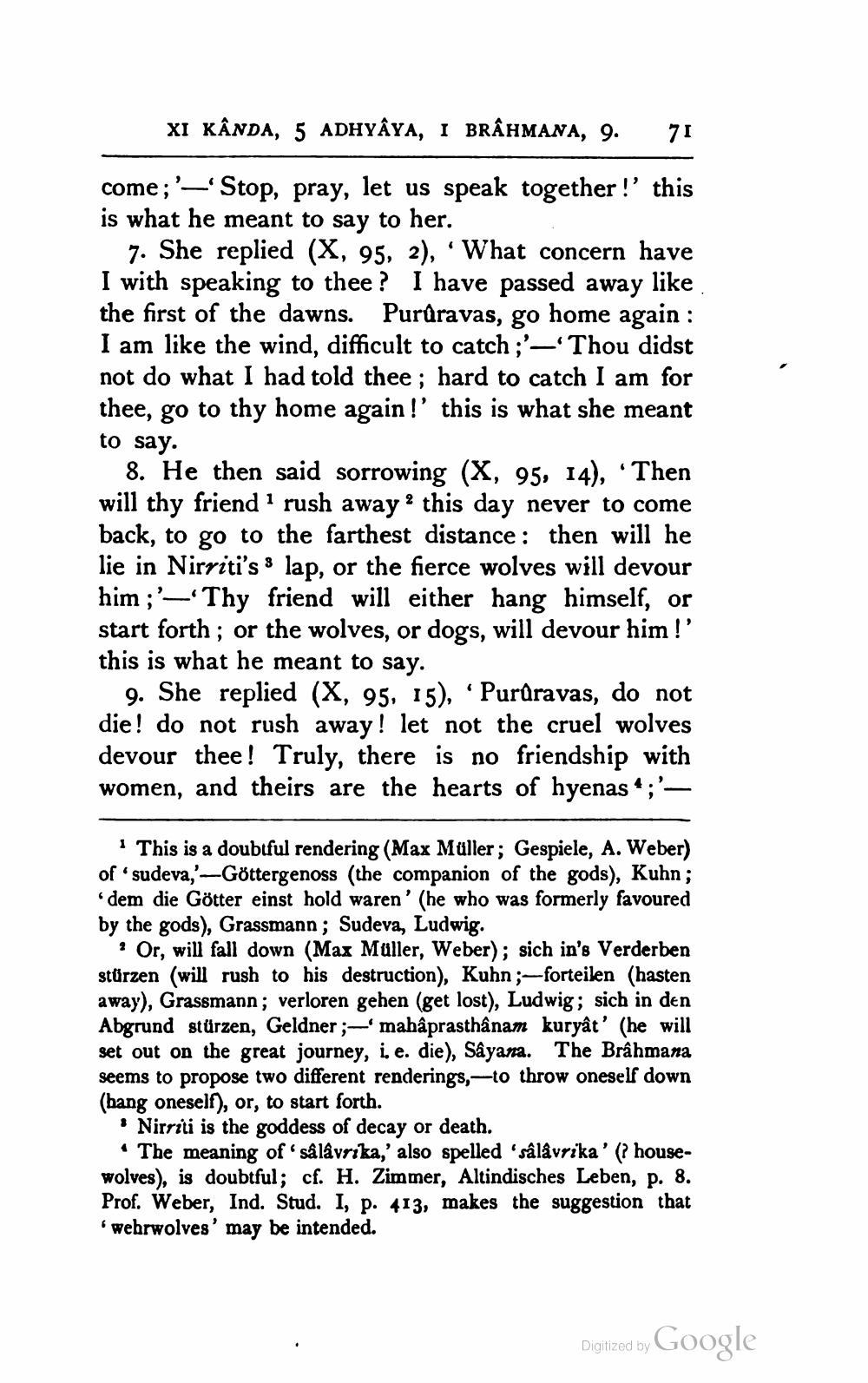________________
XI KÂNDA, 5 ADHYAYA, I BRÂHMANA, 9.
71
come;'-'Stop, pray, let us speak together!' this is what he meant to say to her.
7. She replied (X, 95, 2), 'What concern have I with speaking to thee? I have passed away like the first of the dawns. Purdravas, go home again : I am like the wind, difficult to catch ;'-—'Thou didst not do what I had told thee; hard to catch I am for thee, go to thy home again!' this is what she meant to say.
8. He then said sorrowing (X, 95, 14), “Then will thy friend 1 rush away : this day never to come back, to go to the farthest distance: then will he lie in Nirriti's 8 lap, or the fierce wolves will devour him ;'- Thy friend will either hang himself, or start forth ; or the wolves, or dogs, will devour him!' this is what he meant to say.
9. She replied (X, 95, 15), 'Purûravas, do not die! do not rush away! let not the cruel wolves devour thee! Truly, there is no friendship with women, and theirs are the hearts of hyenas" ;'
* This is a doubtful rendering (Max Müller; Gespiele, A. Weber) of sudeva,'-Göttergenoss (the companion of the gods), Kuhn;
dem die Götter einst hold waren' (he who was formerly favoured by the gods), Grassmann; Sudeva, Ludwig.
? Or, will fall down (Max Müller, Weber); sich in's Verderben stürzen (will rush to his destruction), Kuhn;- forteilen (hasten away), Grassmann; verloren gehen (get lost), Ludwig; sich in den Abgrund stürzen, Geldner; mahâprasthanam kuryât' (he will set out on the great journey, i.e. die), Sayana. The Brâhmana seems to propose two different renderings,-to throw oneself down (bang oneself), or, to start forth.
Nirriti is the goddess of decay or death. • The meaning of salâvrika,' also spelled 'sâlåvrika' ( housewolves), is doubtful; cf. H. Zimmer, Altindisches Leben, p. 8. Prof. Weber, Ind. Stud. I, p. 413, makes the suggestion that wehrwolves' may be intended.
Digitized by Google




